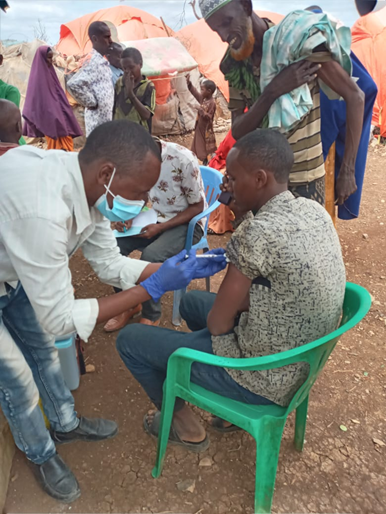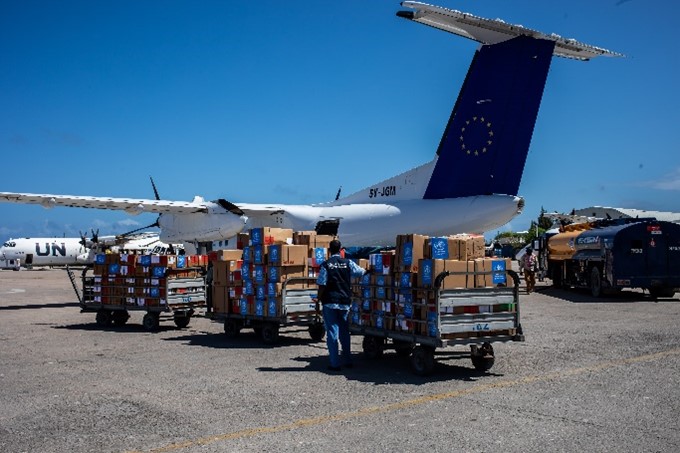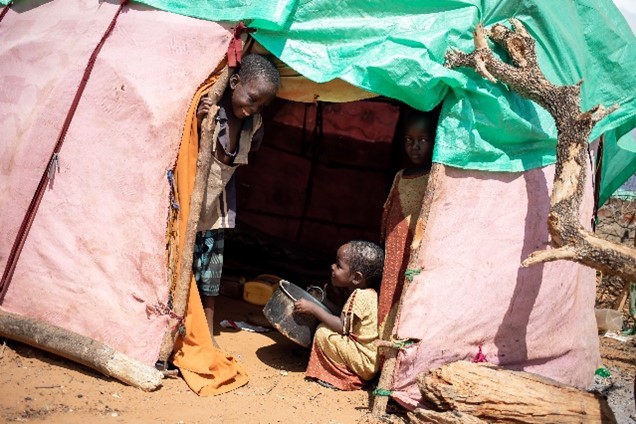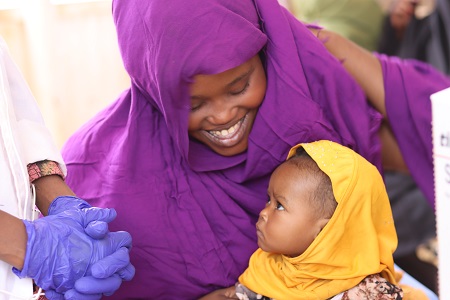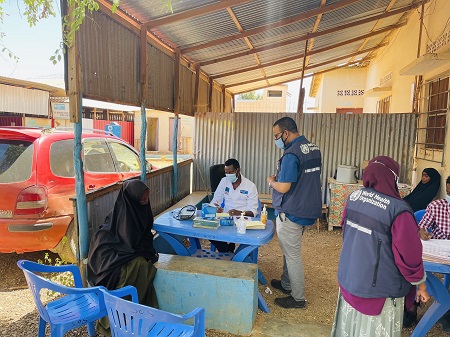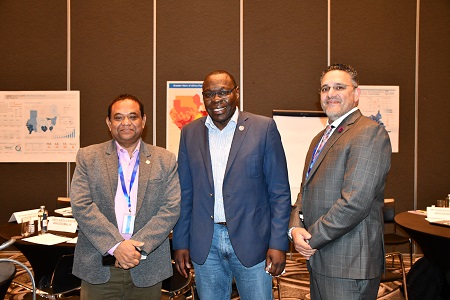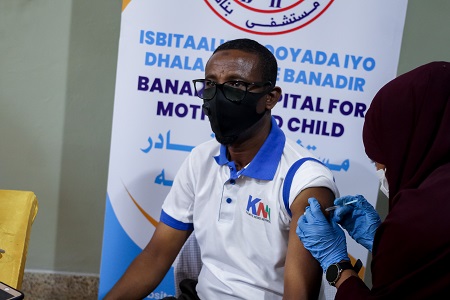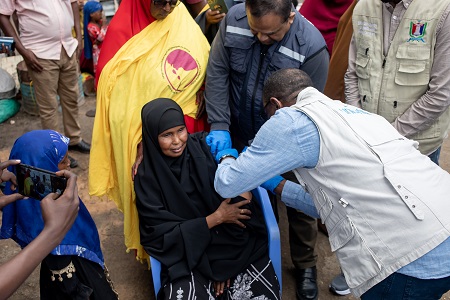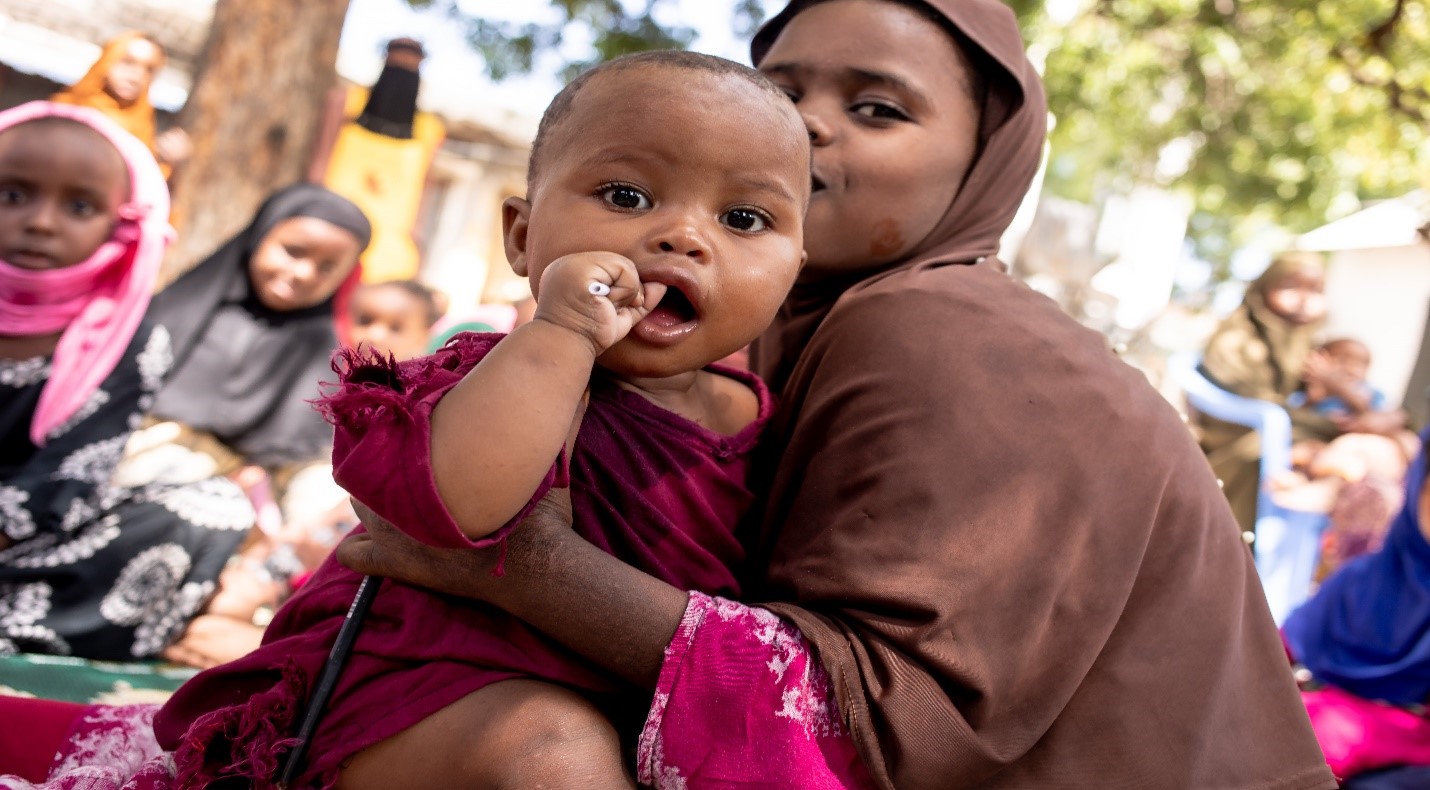 A mother brings her child to get polio vaccination on first day of campaign in Banadir region, Somalia 22 October 2022
A mother brings her child to get polio vaccination on first day of campaign in Banadir region, Somalia 22 October 2022
Mogadishu, 24 October 2022 – Living by its principle of ‘delivering on a promise’, WHO and the Government of Somalia are commemorating the World Polio Day by launching fifth round of this year’s sub-national vaccination campaign across high-risk areas to keep the country free from wild polio virus and ensure every child in this country lives a healthier life.
The World Polio Day was established by Rotary International over a decade ago to commemorate the birth of Jonas Salk, who led the first team to develop a vaccine against poliomyelitis. Use of this inactivated poliovirus vaccine and subsequent widespread use of the oral poliovirus, developed by Albert Sabin, led to the establishment of the Global Polio Eradication Initiative (GPEI) in 1988.
Though the country is free from wild polio virus, a rare strain of polio-called the vaccine-derived polio virus continues to circulate in the country owing to poor immunization coverage amongst the children living or residing in hard-to-reach and partially inaccessible areas. So far, 4 children have been identified with circulating vaccine-derived polio virus type 2.
 Dr Mamunur Malik, WHO Representative in Somalia administering polio vaccine in Banadir region, June 2022Facing multiple outbreaks of cholera and measles, amid an unprecedented drought and an ongoing pandemic (COVID-19), WHO Somalia in collaboration with its partners has helped the federal and state health ministries to complete four successful polio campaigns this year. About 3.6 million children under 5, including 327 467 zero dose children (first time vaccinated) and an additional 2.4 million children aged between 5 and 10 years were vaccinated during these campaigns. The completed polio campaigns include 2 rounds of country-wide national immunization days (NIDs) conducted in March and June 2022, while another 2 rounds of sub-national immunization days in selected high-risk districts were completed in February and August 2022. The fifth round has coincided with this year’s World Polio Day and is currently under way in 79 districts in Banadir, Galmudug, Hirshabelle, South West and Jubaland states targeting 4.75 million under-10 years of age children.
Dr Mamunur Malik, WHO Representative in Somalia administering polio vaccine in Banadir region, June 2022Facing multiple outbreaks of cholera and measles, amid an unprecedented drought and an ongoing pandemic (COVID-19), WHO Somalia in collaboration with its partners has helped the federal and state health ministries to complete four successful polio campaigns this year. About 3.6 million children under 5, including 327 467 zero dose children (first time vaccinated) and an additional 2.4 million children aged between 5 and 10 years were vaccinated during these campaigns. The completed polio campaigns include 2 rounds of country-wide national immunization days (NIDs) conducted in March and June 2022, while another 2 rounds of sub-national immunization days in selected high-risk districts were completed in February and August 2022. The fifth round has coincided with this year’s World Polio Day and is currently under way in 79 districts in Banadir, Galmudug, Hirshabelle, South West and Jubaland states targeting 4.75 million under-10 years of age children.
To maintain its polio free status, WHO and the Government of Somalia owes this sustained marathon effort to their trusted partners like UNICEF, Rotary International, Bill & Melinda Gates Foundation, the United SCentre for Disease Control and Prevention, and United States Agency for International Development (USAID). Together with WHO, these partners have been helping to not only raise the immunization profile of the country but also introduced a polio transition plan to switch the focus from polio-only efforts to improved routine immunization, data-driven surveillance, risk communication and community engagement, and integrated health outreach activities. This WHO-led transition is proving its utility as the infrastructure and platforms established under polio programme is now helping to save many precious lives across Somalia during the ongoing pandemic and multiple outbreak responses.
Somalia’s polio transition plan is capitalizing on the existing network to improve routine immunization strengthen surveillance and outbreak response activities as well as to improve access to healthcare for marginalized section of the community using the primary health care system. The plan will ensure a better, fairer, and healthier future for mothers and children in the country.
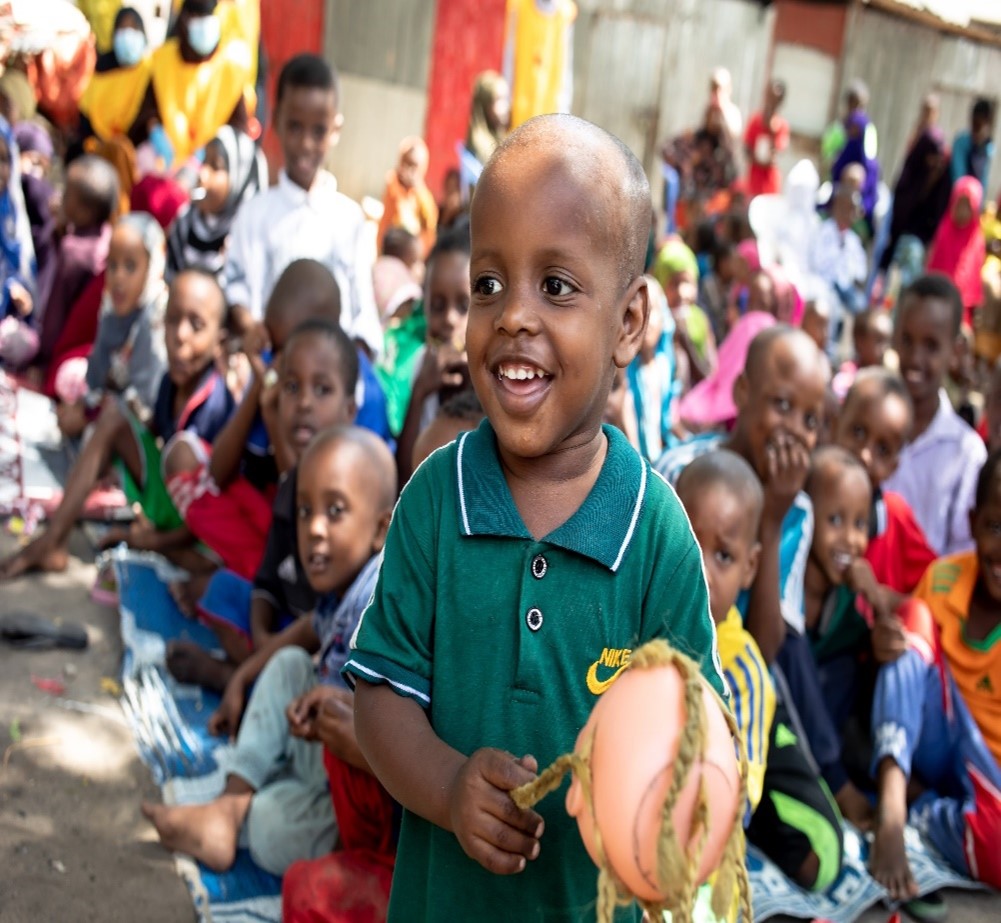 Responsible parents bring their children for polio vaccination site in Banadir region, Somalia during the ongoing supllementary national immunization day, October 202“We are thankful to WHO for helping us conduct a polio campaign in 11 hard to reach districts this year. This was the first-ever campaign in these areas in the past 10 years and helped to vaccinate almost 52% of previously unvaccinated children in these districts. We are confident of ‘delivering on our promise’ of keeping every child safe from all vaccine preventable diseases in our country,” said polio focal point for Somalia Mr Mohammed Nur.
Responsible parents bring their children for polio vaccination site in Banadir region, Somalia during the ongoing supllementary national immunization day, October 202“We are thankful to WHO for helping us conduct a polio campaign in 11 hard to reach districts this year. This was the first-ever campaign in these areas in the past 10 years and helped to vaccinate almost 52% of previously unvaccinated children in these districts. We are confident of ‘delivering on our promise’ of keeping every child safe from all vaccine preventable diseases in our country,” said polio focal point for Somalia Mr Mohammed Nur.
WHO Somalia has faced many challenges to come this far in its fight against polio and is committed to help the Somali health system qualify to the next level of sustenance by maintaining the gains achieved during the implementation of polio programme.
Dr Ali Ben Break, the acting Team Lead for polio programme at the WHO country office said, “As the world is expecting realization of polio eradication promise in the coming years, it will be imperative to ensure smooth integration of its experiences, lessons and health assets in high risk and endemic countries, especially in a post-pandemic world. WHO Somalia team had adopted to this changing reality more quickly than perhaps many other countries. Our team has shown the resolve and resilience to work on multiple fronts in perhaps one of the most difficult places on the face of earth and will continue to save the humanity through our integrated and professional approach.”
For additional information, please contact:
Kyle DeFreitas, WHO Somalia External Relations Lead, هذا البريد محمى من المتطفلين. تحتاج إلى تشغيل الجافا سكريبت لمشاهدته.
Fouzia Bano, WHO Chief of Staff ai, Communications Officer, هذا البريد محمى من المتطفلين. تحتاج إلى تشغيل الجافا سكريبت لمشاهدته.
-----------------
Related links
World Polio Day 2022 and Beyond: A healthier future for mothers and children (who.int)
WHO Regional Office | Expanded Programme on Immunization | Priority areas | Somalia site





